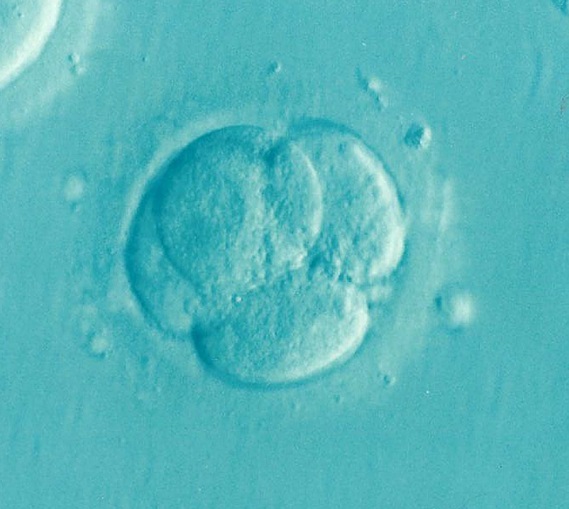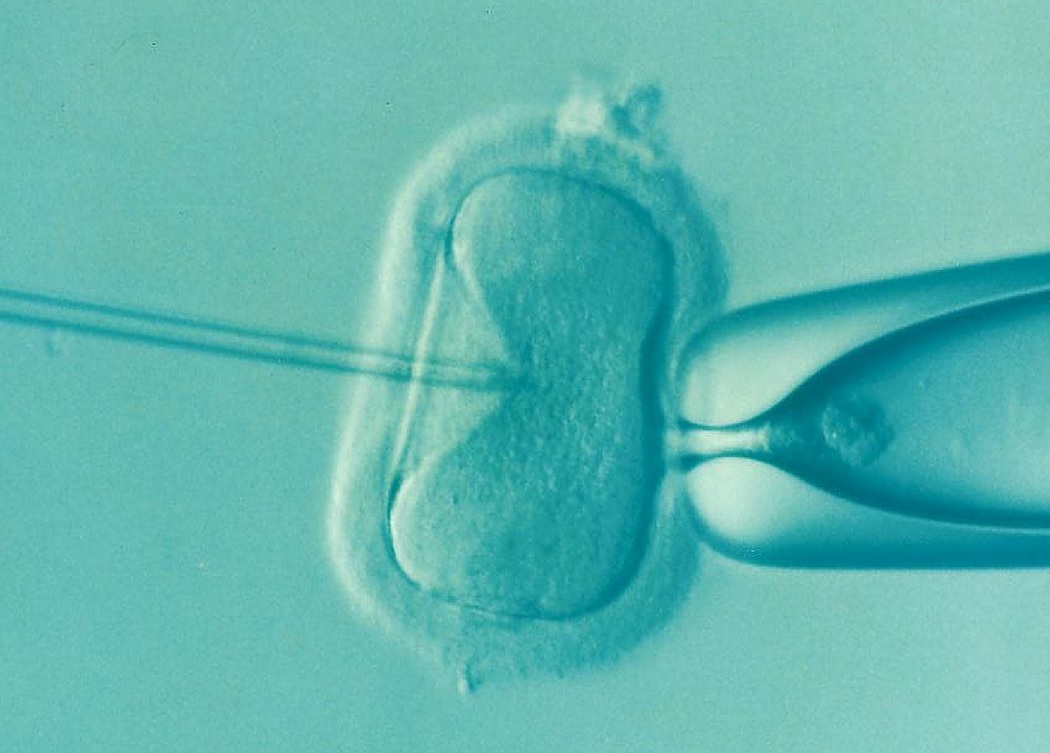Frozen embryos exist in a strange place, between property and personhood, bridging the future and the laws of the past.
Last month, a Virginia judge presiding over a couple’s divorce took some time to think of the children.
Well, embryos, anyway. Whether one should consider frozen embryos to be actual children, in the same way as a frightened five-year-old on the first day of school or a young teen with whom you need to have “the talk,” is a matter of some dispute in our society. Either way, though, Fairfax county circuit court judge Richard Gardiner considered the law, and he considered the snowflake children, and he made a pretty extraordinary leap to a rather outstanding conclusion.
Gardiner, once Assistant General Counsel for the National Rifle Association, delved into some moldy old Virginia statues from the time when human beings were considered to be the property of other humans. (If you’re from a state where you couldn’t learn this in school because it makes some people sad to know that their ancestors did bad things, you might have to go to a library on your own time to look it up. Hopefully they were allowed to keep some books about the subject.) Reaching way back into the vaults, in what must have been a desperate search for some kind of precedent, somewhere, which could somehow speak to a case where a couple who once underwent fertility treatments was later seeking divorce, and he came up with the idea that people could be considered chattel.
Well, embryos, anyway. Again, whether unimplanted embryos, consisting of a few cells apiece, can be considered people when some folks don’t think their political opponents even count as such, is a matter of particularly divisive opinion.
At any rate, Gardiner opened his mouth and what came out were some words about how we can think of the children – the embryos – as small, frozen bits of property that could, potentially, be bought and sold. Just like a mule or a bag of peas or maybe a used copy of Toni Morrison’s Beloved. Since the embryos are merely property, Gardiner decided, they can be divvied up just like the couple’s other goods, and therefore could potentially end up belonging to Honeyhline Heidemann, age 45, who would like to eventually give birth to them. She and her was-band, Jason Heidemann, had put their genetic material together earlier in their marriage, when, likely, both of them thought it was a good idea.
The judge had previously sided with Mr. Heidermann, who asked that Honeyhline not be granted custody of the embryos since implanting them would force him to “procreate without his consent.” As if none of this had been intentional, and he merely found himself in flagrante delicto with a specimen bottle in the bedroom of a bro’s frat house after too many rounds of beer pong at a Superbowl party and accidentally handed his cup of man juices to the IVF clinician on his way to the bathroom (again) because that’s how much weak, pale American lager you have to drink to be plastered enough to not realize what was on that consent form. Practically speaking, he already procreated, if we’re considering post-fertilization, pre-implantation embryos to be people with human rights.

It’s also worth noting that if it had been a live, functioning human female instead of a sterile plastic tube, nearly half the States and six Supreme Court justices wouldn’t have too much problem forcing her to procreate without her consent (a decision also based upon 17th and 18th century legal doctrines, I might add). After all, isn’t merely being drunk at a party pretty much implied consent, at least in certain circles?
But I digress.
It’s hard to know exactly how social conservatives would prioritize the wishes of the unfortunate couple. Are embryos people all the time, or only when it isn’t a man facing unwilling procreation? Are embryos a man’s quasi-property, much like some believe a wife or children to be? Does a single woman wanting to be a mom square with the image of the proper authoritarian family model?
However, it’s also hard to take the pro-life movement (and illiberalism generally) at all seriously when they don’t think of the children and their wellbeing in nearly any other context. For example, if a child’s life is a gift from God, not to be squandered, should they not also be guaranteed shelter, food, education, and medical care, even if it means that society incurs (gasp!) a cost, and one that may be borne more heavily by those who can afford to do so, at that? Or does the right of the wealthy to hoard that wealth outweigh the right of a child to the life given to them by God, or at least some states’ laws?
Despite assurances to the contrary, society’s arc is not guaranteed to move always and forever toward an inevitable vision of “progress.” Just as the prosperity of the oil age and post-WWII boom have faded and left us post-industrial ruins and the freelancer economy, so too might social progress once again become subject to laws considered to be as obsolete as chattel slavery. We have a lot to work out amongst ourselves as a country, and competing visions of what we want to be. One hopes, however, that we all think of the children who will inherit all the sundry messes we leave them, and try to do a bit better than we have been.
Related: Alternative Families Have Pride Too
Snowflakes® is a registered trademark of Nightlight Christian Adoptions.


Join the conversation!